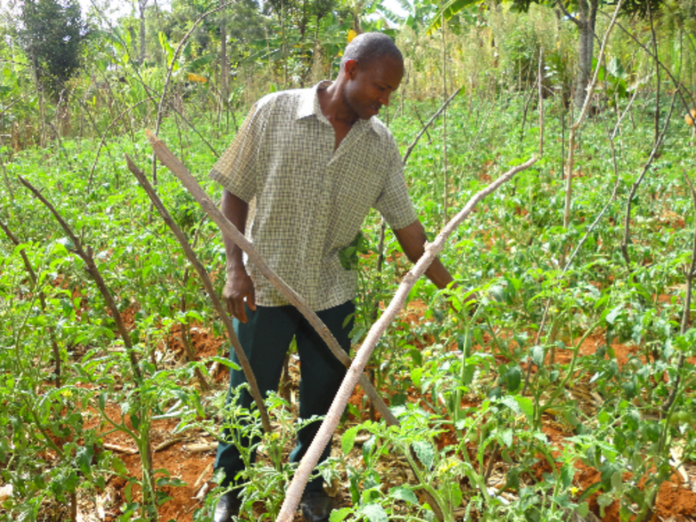BY ALEX NYAGA
Moses Njue first worked as a mechanic in Meru town after class 8 and later as a driver in Nairobi until 2005, when he decided to shift to farming in his rural home in Manyatta sub-county, Embu county.
He grows Riana F1 variety of cabbage and prostar F1, Libra FI and Riograde tomato varieties because they are high yielding, resistance to diseases and fetch good money in the local market and neighbouring schools.
Njue, who hails from Kevote area in Manyatta sub-county, has currently planted 2,000 tomato stems and 2,000 cabbages. “I also sell my tomatoes and cabbages in bulk to customers who operate in Githurai market. I sell 1kg of tomatoes at Sh60 and a single cabbage for Sh50 at the local market, returns from horticulture are good,” he says. In a good month, he is able to make up to Sh80,000 by the end of this month,” he says, adding that he has been able to buy a dairy cow at Sh60,000, motorbike, half an acre land and built a decent house.
Njue’s journey started when his father gave him half an acre plot with 100 coffee bushes but little earnings from coffee disappointed him. He uprooted all the coffee bushes and replaced them with tomatoes and cabbages. Njue used the little earnings from coffee payout to purchase seeds, manure, pesticides and knapsack sprayer.
“After uprooting all my coffee bushes, I planted 1,000 stems of tomatoes which gave me cash to buy a motorbike and a water pump due to inadequate rainfall,” says Njue.
He pumps water into a reservoir from where he distributes it using underground pipes. “The reservoir ensures that I store enough water for my tomatoes and cabbages and that I have constant supply of water for my crops,” he explains. Njue says tomatoes do well in relatively warm conditions and are considerably adaptable, but he cautions that excessive temperature and humidity may affect yields.
He also advises that when preparing a nursery, it is imperative to choose a location where cape gooseberries, potatoes, peppers and eggplants have not been planted for a period of not less than three years to avoid disease threat. Njue applies manure which he mixes with soil and double super phosphate fertiliser to improve yields.
“Before transplanting tomato seedlings from the nursery one month after sowing, I mix fertiliser thoroughly with soil and manure to avoid scorching of young tomato plants. Four weeks after transplanting I then apply CAN fertiliser,” he says.
Njue also mulches his tomatoes and cabbages with dry matter to lower soil temperatures and conserve moisture. This helps in reducing weeds that compete for nutrients and water with the plants. “I prune tomatoes to promote the growth of high-quality marketable tomatoes. By removing leaves very close to the ground, one prevents tomato plants from fungal diseases. My tomatoes take an average of three- five months to grow,” he explains.
This feature was first published in The Star newspaper by Alex Nyaga.








